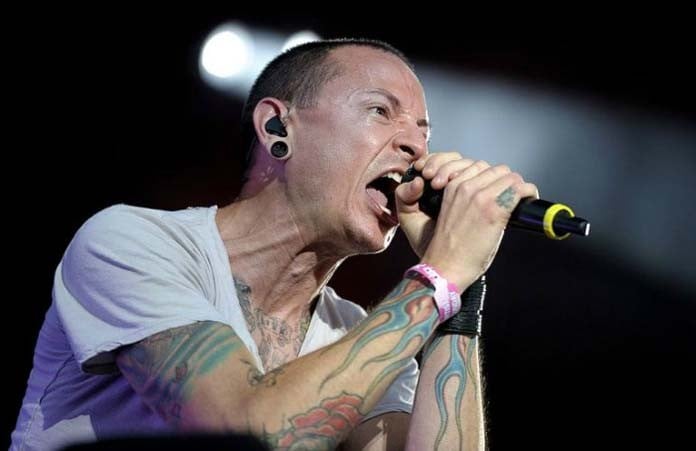
When a celebrity like Chester Bennington cuts their own life short, how do ardent fans rationalise the decision?

Chester Bennington, frontman for iconic nu-metal band Linkin Park committed suicide by hanging last week after a life spent struggling with pain, abuse, addiction, and loss. It is, of course, lamentable that a truly great musician has passed away, and this will lead to the disbanding of a class act that defined the lives of the generation that grew up in the new millennium.
It is also pertinent to consider a few profound questions raised by Bennington’s unnatural death.
For starters, what is it that prompts fans to react passionately, almost vicariously, to the death by suicide of a favourite ‘star’? The news of a musician, actor, writer, or other media celebrity taking his/her life often violently stirs the emotions of fans. I teach at a public university where only a handful of faculty and students actually relate to Linkin Park or understand the nuances of Western music. Yet, the handful of people who did follow Linkin Park’s career reacted in a predictable way -- lamenting, mourning and marvelling at how Bennington chose to take his life on the birth anniversary of his late friend Chris Cornell, who only in May this year had also hanged himself.
Compare this with the death of other celebrities. Leonard Cohen remained ill but died of natural causes, and so his death did not bring about disbelief. It was met with sobriety and a celebration of his life. Meanwhile, Michael Jackson’s fans still debate whether he died of a drug overdose or not. The untimely deaths of Prince and Amy Winehouse are also linked with alcohol and drug abuse. These deaths were predictably received with a mournful regret. The pattern suggested by this comparison is that the death of a favourite superstar results in shock and incredulity, resulting in a need to rationalise it.
Why exactly do fans need to rationalise the suicide of a star they admire? For this, one does not have to look very far, but to the need of all human societies to have idols. In a literal sense, idol worship was a part of all primitive cultures, and remains to date one of the largest forms of cult worship and religious organisation in the world. On a metaphorical level, heroes and legends have always provided succour to the human need for super-human ideals to present as role models to eager children awaiting a bedtime story.
In the contemporary world, with media forming the central axis of alignment for philosophy, literature, idol/ideal generation, and rational reconfiguration of daily life, it is but natural that media personalities take the centre stage, and replace the mythical heroes and legends of yore. The powerful Hercules was supplanted by images of Arnold Schwarzenegger’s unrealistically pumped-up body, which in modern parlance has been substituted by the images of the six-pack bodies of film stars like Salman Khan.
With media acquiring such centrality, a poet and a musician too have acquired new symbolic values. The poet and the minstrel were, after all, reportedly banished by religion as well as by Western philosophy (Plato, incidentally, did not desire for poets to be banished unilaterally from the ideal Republic, but scripture-based reinterpretations of his work gladly ignored the fact that music was an essential part of the ideal system of education).
The musician is often also a poet. Bennington most certainly was a poet. One of the major reasons why poetry is feared by most societies (and this they share with Plato), is that unlike fiction the processes and motivations behind the creative impulse to write poetry are varied, complex, and often beyond the intellectual capacity of anyone but a poet. At some point in history, it was deemed appropriate to generalise that great poetry emanated from great pain or loss. This is, of course, a generalisation often extended to all literature, but never as vociferously advocated as a truism than in the case of poetry and music.
As a model of the imperfect individual who is recognised by society as a genius, the musician/poet offers his work to the public for ruthless analysis. Thus, the fan often tends to locate loss and pain in the works of the ideal. Since the superstar represents perfection, his struggle with misery, loss, pain, and depression make it possible for us to stand on the same pedestal as he does. This equity with the ideal is possible only through pain since the fan does not share the joys of superstardom. Wealth, adulation, and success cannot be shared, and to the average fan these do not seem realistic either. Therefore, whenever the star is in pain or suffers a setback (divorce, drugs, depression), it suggests to the fan that he is as human as anybody else.
We empathise only when we see the role model as being as flawed as us. Nothing suggests that failure more than the star taking his life after struggling with depression. That is how we rationalise it for ourselves.